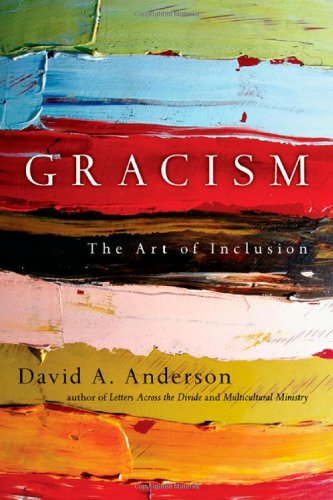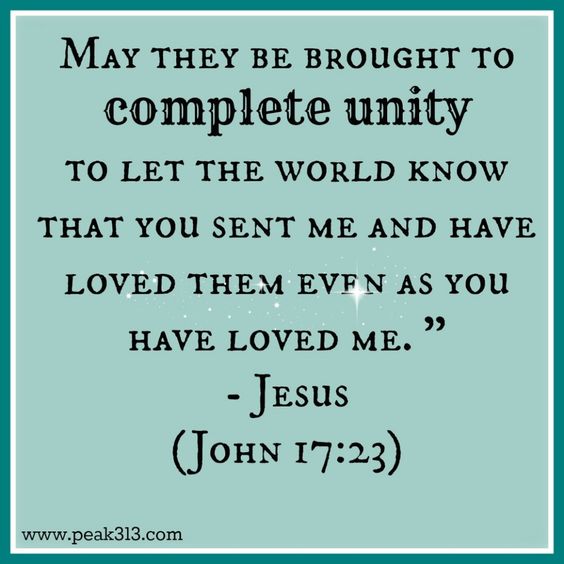Click here to return to Blog Post Intro

Racism is not simply a skin problem but a sin problem. All people struggle with sins of superiority, inferiority, and greed rooted in history, including the many onlooking countries, corporations, and religious denominations that either turned their heads or directly benefited from the horrors of American slavery.
From Racism to Gracism
Gracism is the positive extension of favor on other humans based on color, class, or culture. As Paul says in Galatians 6:10, “As we have the opportunity, let us do good to all people, especially to those who belong to the family of believers.”
In Genesis 16:13, Hagar “gave this name to the Lord who spoke to her: ‘You are the God who sees me,’ for she said, ‘I have now seen the One who sees me.'” The one who hears, sees, and pays attention to those on the margins—those in the desert—is a gracist. God shows us through His actions with Hagar what the heart and art of inclusion look like. God went out of His way to minister to Hagar, an Egyptian woman who wasn’t an heir to the Abrahamic promise.
A gracist reaches across ethnic lines and racial borders to lend assistance and “extra grace” to those who are different, on the fringe or marginalized. Just as God reached out to Hagar to comfort her in the desert of life, so we can minister to those who are desperate for someone to hear them and see them.
The Art of Inclusion
At the current rate, the United States will have no single majority racial or ethnic group by the middle of the 21st century.
Anderson explains his approach to inclusion, “At Bridgeway Community Church, where I pastor, we have added new team members with an eye to color and culture. A gracist recognizes the power of diversity. A gracist will go to any length and work as diligently as possible to ensure that such beauty is seen and celebrated.”
Then, he encourages us to reflect, “Think about your church. Think about your small group or Bible class. Am I reflecting the life of Christ as a gracist or reflecting the life of a racist? Am I perpetuating segregation among Christians and simply justifying it with my preferences and comfort? Am I a bridge builder of reconciliation?”
Anderson goes on to provide this caution, “I know of one Christian college that wanted more people of color on their campus, so they started a scholarship athletic program, but in this case inadequate preparation for changes in the student population wreaked havoc. The unicultural soil wasn’t appropriately prepared for the multicultural seed.”
The Seven Sayings of a Gracist
- “Special Honor”—I will lift you up.
- “Special Modesty”—I will cover you.
- “No Special Treatment”—I will share with you.
- “Greater Honor”—I will honor you.
- “No Division”—I will stand with you.
- “Equal Concern”—I will consider you.
- “Rejoices with It”—I will celebrate with you.
Saying One: “I will lift you up” (Special Honor)
A gracist is committed to lifting up others who are on the fringes, in the minority or in need of extra attention. As Paul says in 1 Corinthians 12:22-23, “Those parts of the body that seem to be weaker are indispensable, and the parts that we think are less honorable we treat with special honor.”
A gracist offers prayer, interceding on behalf of others who are underappreciated, undervalued, on the fringes or different. For those in the margins, prayer feels rewarding to know that someone in the majority culture or in a power position cares enough to be concerned with such matters.
When we serve others, we must be careful to ensure that we are doing what is truly best for them and not best for us. Because our motives are often convoluted, we can psych ourselves into believing that we are lifting others up and doing good for them when the reality is that we are looking for our own pats on the back about our advocacy, our gratification, and our desires.
Saying Two: “I will cover you”
As Paul says in Colossians 3:11, “Here there is no Greek or Jew, circumcised or uncircumcised, barbarian, Scythian, slave or free, but Christ is all, and is in all.” Notice how Paul mentioned race, religious practice, ethnicity, and class. “Therefore, as God’s chosen people, holy, and dearly loved, clothe yourselves with compassion, kindness, humility, gentleness, and patience.”
Modesty in the way we speak about ethnic groups, genders, and classes is critical to unity. It is incumbent upon those with power or privilege to take on the responsibility to protect and cover others—and use their privilege responsibly.
Saying Three: “I will share with you”
The third saying of Paul in 1 Corinthians 12 (from verses 23-24, “The parts that are unpresentable are treated with special modesty while our presentable parts need no special treatment.”) may be the hardest principle of gracism to accept because it cuts to the heart of our insatiable appetites for entitlement and the expression of individual freedom.
The concept of downshifting, downgrading or refusing to accept special treatment is antithetical to Western individualism and assaults much of what we have been taught as our inalienable rights. Downgrading in order to share in community is countercultural to upward mobility and personal aggrandizement.
This involves majority persons refusing to accept special treatment, perks, and honors that are unnecessary in the face of those who do not have them. Accepting such “in your face” special treatment is the opposite of humility and grace.
The art of gracist inclusion means that the stronger or privileged person has the power and opportunity to give up privilege in the face of those who do not have the privilege so that they may join them in community. Valuing community and fellowship over comfort is a practical way to process Paul’s statement about special treatment.
Saying Four: “I will honor you”
In 1 Corinthians 12:24, Paul says, “God has combined members of the body and has given greater honor to the parts that lacked it.” A gracist is—like God—an extender of grace and honor to everyone.
To give greater honor to the ones who lack it most, try these four methods:
- Service: It honors God when we serve the poor, the crippled, the blind, and the lame.
- Speech: When we speak in ways to lift up others who are beaten down by life and circumstances—even for those whose own choices placed them in the situation in which they find themselves—we honor them.
- Stewardship: When we invest time and money in programs and people who are about elevating those who lack honor in society, we honor God.
- Sitting: When is the last time you sat with someone who lacked honor? In our fast-paced world the ministry of sitting with people may be the most powerful ministry of all. By assigning greater-than values to the marginalized, the playing field of honor is leveled, God is pleased, and everyone feels better.
It is okay to be unfair, not for the purposes of hurting others, but for the purposes of helping those who are in a state of lack.
Saying Five: “I will stand with you”
In 1 Corinthians 12:24-25, Paul says, “God has combined members of the body and has given greater honor to the parts that lacked it, so that there should be no division in the body, but that its parts should have equal concern for one another.”
Because God is unified in His nature, He demands that those who follow Him must reflect this unity in the body of Christ. Praying together unifies people at the deepest level more than any other spiritual practice.
Pastor and civil rights lawyer Reverend Walter Fauntroy explained, when discussing his role in the life of Dr. Martin Luther King, Jr. as a social activist and civil rights organizer, how those who are disenfranchised and discriminated against begin to feel embittered toward the powers that be. Fauntroy said that if those who have don’t share with those who don’t, then it will only be a matter of time before those who don’t have will try to violently take it. Frustration and division can be wedged between the “haves” and the “have nots,” between the powerful and the powerless.
Don’t ignore them. Honor them. Use your power to encourage, inspire, protect, and bring them into the fold. In so doing, you will fend off the thing that God hates—division, racism, discrimination, segregation and classism that divide. Gracism unites.
Standing with and for others who are the “least of these” is not a popular position, but it is one that Jesus commends to us so that love will penetrate the human heart and division among enemies will be healed. Jesus was a gracist. He reached out to the poor and the prisoners, the disabled and the oppressed, so that they would not be divided from him or us.
Will you say to others on the fringes, “I will stand with you when you are mistreated, devalued, ignored, or left out”? When choruses of believers sing “I will stand with you” with passion and conviction for one another, true unity will abound. Otherwise, the result will be the dissension and division God hates.
Saying Six: “I will consider you”
In 1 Corinthians 12:24-25, Paul says, “God has combined members of the body and has given greater honor to the parts that lacked it, so that there should be no division in the body, but that its parts should have equal concern for one another.”
The Samaritan did three loving things that underscored the point about loving one’s neighbor that Jesus was teaching through His parable:
- Merciful Heart: The Samaritan “took pity” on the downtrodden man (Luke 10:33).
- Shepherding Heart: The Samaritan took action by bandaging the man’s wounds and escorting him to a safe place where he could heal.
- Generous Heart: The Samaritan invested in the healing of the victim by paying the innkeeper for the time spent in the inn, offering additional money if the man needed to stay longer.
Self-preoccupation can keep Christians from experiencing the multicultural, multiracial, and multi-denominational unity God desires for us. When Christians stop reacting negatively to sociopolitical terminology like affirmative action, special interest or equal opportunity, and instead use Paul’s terms special honor, greater honor, and equal concern, it will change our attitudes from a “me and mine” to a “we and ours” mentality.
The “them versus us” mentality plagues race relations, denominational distinctions and cultural differences to such a degree that it is hard for compassion to cross over to the other side of the street. If I don’t see the man lying on the side of the road as one who is part of my family, ethnicity, religious group or class, then it is easier to dismiss him.
Saying Seven: “I will celebrate with you”
In 1 Corinthians 12:26, Paul says, “If one part suffers, every part suffers with it; if one part is honored, every part rejoices with it.”
When others are hurting in the body, gracism demands that we sympathize with the pain of our brothers and sisters. When someone is unfairly or unjustly treated, we should stand with that person since we are all a part of one body.
Celebrating each other’s successes and wins is critical to unity. Jealousy and covetousness brew the poison that brings dissension to the body. Regardless of race or gender, when one adds the distinctions of diversity to the mouthpieces of the church, it broadens the styles and perspectives of God’s Word being taught to His blended body.
The white experience is a puzzle piece that can’t be left on the floor. Whites are a part of the multicultural body of Christ; otherwise, “multicultural” means everyone else but us. Every piece of the puzzle matters. Everyone has a diversity story. Whether white, black, brown, red, or yellow, we all have a story.
How can I become a Gracist?
Unity of the body is a spiritual matter first and foremost. God’s Spirit delights in breaking down barriers and adjoining different parts of the body—causing them to dance.
When Spirit-led believers come together in communal interdependence, the Spirit maximizes kingdom potential and moves in dynamic and unpredictable ways. When believers come together in prayer and unity, the Spirit is invited to act.
Gracism is the positive extension of favor on other humans based on color, class, or culture. Instead of using race, class, and culture as negative descriptors that cause us to resist one another, we should use these distinctives as opportunities to extend grace more fully—gracism.
Here are some practical suggestions for each of us:
- Receive the grace of God in your life first. If you have not given your RSVP to God’s loving proposal to forgive you for your sin and begin a personal relationship of trust with him, then now is the time for you to respond to God.
- Reach over the color line by inviting someone to your church or home. Christianity at its best is a faith that reaches across lines of comfort and convenience (Acts 1:8).
- Read on the subject of reconciliation.
- Relate on purpose to people who are different. Make it your business to shop, work out, eat or play in parts of town where you have a higher probability of interacting with people who are different from you.
- Link with a church or organization that promotes care for the poor.
A Closing Word
I end this book with an African proverb that has guided me in bridge building and racial healing:
When I saw him from afar, I thought he was a monster.
When he got closer, I thought he was just an animal.
When he got closer, I recognized that he was a human.
When we were face to face, I realized that he was my brother.
May you extend Gracism to your brother and sister, as you shoot for the stars!


